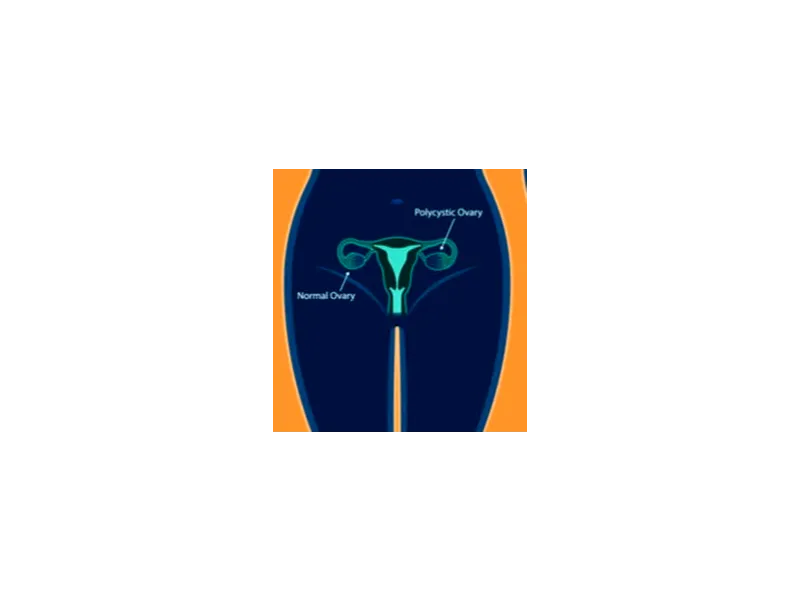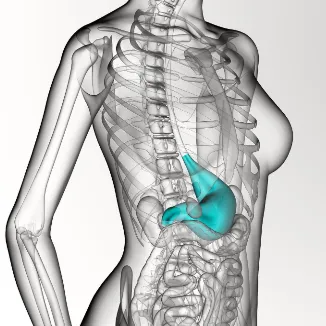Benefits of vitamins and Mineral Dietary Supplements
There are various types of nutritional supplements that can be used to treat a wide variety of health problems. These include vitamins, minerals, and herbal treatments. There are many benefits to taking mineral dietary supplements. Minerals are essential for our bodies to function properly. They help us to maintain our bones and teeth, and to keep our blood pressure and heart rate under control. They also play a role in helping our bodies to produce energy and to repair cells.
Minerals are essential for our bodies to function properly. They help us to maintain our bones and teeth, and to keep our blood pressure and heart rate under control. They also play a role in helping our bodies to produce energy and to repair cells.
Taking a supplement can help to ensure that we are getting the right amount of minerals in our diet. This is especially important if we are not eating a balanced diet or if we are not able to absorb minerals from the food we eat. Mineral supplements can also be helpful if we are pregnant or breast-feeding, or if we have certain medical conditions that can affect our ability to absorb minerals from our diet..
The use of dietary supplements has become increasingly popular as people look for ways to enhance their health. Marketed as dietary supplements, these products are designed to provide specific nutritional benefits. However, supplements are not regulated by the FDA, so there is no guarantee that they are effective. Additionally, supplements tend to be expensive, so taking them without first speaking to a doctor could be a waste of money.
For people who are interested in taking vitamin supplements, it is important to remember that the body needs different amounts of vitamins at different life stages. For example, pregnant women need more folic acid than women who are not pregnant. Additionally, taking antioxidant supplements has been linked to a reduced risk of cardiovascular disease in men.
However, it is important to remember that taking high doses of any vitamin can be dangerous. Therefore, it is important to speak to a doctor before starting any supplement regimen.
Additionally, it is important to be aware of the potential health risks of taking supplements. Some supplements can interact with medications, and others can cause health problems if taken in large doses. Therefore, it is important to research any supplement before taking it..
Supplements are effective because they provide the body with specific nutritional needs that helps protect the body and enhance health. Different health conditions require different amounts of vitamin c, and antioxidant supplements can help meet those needs. Cardiovascular disease in men is one health condition that can be improved by taking vitamin e supplements.
Many supplements are available, but it is important to know the health risks and benefits of taking them before starting. High-dose multivitamins are not always better, and sometimes the body can't absorb all the nutrients in them. It is important to know the dietary reference intakes for calcium and vitamin d, because the body needs them in order to function properly. Supplement intake on nutritional adequacy is an important topic, because it can help improve overall health.
The Effects of Mineral Deficiency
A lot of people don't know how important minerals are. If you want to live a long life, then you need to make sure that you get enough magnesium, calcium, zinc, iron, selenium, copper, chromium, and potassium. Here's why.
First of all, these are vital nutrients for your body. Your brain needs them to function properly.
Your bones also require a healthy supply of these elements. Without them, you won't be able to build strong bones. This is especially true for women who are pregnant.
If you have any type of illness, then you will likely suffer from anemia. That means that you're lacking in red blood cells.
You should try to eat foods that contain plenty of magnesium, calcium, zinc, and other essential minerals. You can do this by eating more leafy green vegetables, beans, nuts, seeds, whole grains, fish, meat, eggs, milk, yogurt, cheese, and orange juice.
If you are trying to lose weight, then you'll need to consume less food. But don't worry, there are still lots of ways to get the right amount of nutrition without consuming too much.
What Are Minerals?
Minerals are essential nutrients that are required for many bodily functions. They are found in both plant and animal foods, and are necessary for good health. Minerals are classified as either macrominerals or microminerals. Macrominerals are needed in larger amounts and include calcium, phosphorus, magnesium, sodium, potassium, chloride, and sulfur. Microminerals are needed in smaller amounts and include iron, manganese, copper, iodine, zinc, selenium, molybdenum, and chromium.
Minerals are essential for many bodily functions, including bone and tooth formation, blood clotting, and muscle contraction. They also play a role in metabolism, and help to maintain fluid balance in the body. Minerals are absorbed into the body through the gastrointestinal tract, and are then transported to the cells and tissues where they are needed.
Most people get the minerals they need from their diet, and do not need to take mineral supplements. However, some people may not get enough of certain minerals from their diet, and may need to take supplements. Mineral supplements are available in many forms, including capsules, tablets, and liquids. It is important to speak with a healthcare provider before taking any supplements, to ensure that they are right for you.
There is no doubt that vitamins are important for our bodies. However, they aren't the only thing that we need to live a healthy life. We also have to make sure that we get enough of certain other things. For example, we need to eat plenty of food, but we should also take care to ensure that we're getting all of the different kinds of nutrients.
The first thing that we need to know is that there's more than one kind of mineral. There are two main categories of these. The first are called macrominerals. These include calcium, phosphorus, magnesium, sodium, potassium, chloride, and sulfur. These are the types of minerals that we find in both plants and animals.
Micronutrients are another type of mineral. These are usually very small particles that are used by our bodies to perform various functions. They can be found in foods, such as fruits and vegetables.
You may not realize it, but you actually absorb most of your nutrition from what you eat. This means that if you don't get enough of some nutrients, then you won’t feel well. You might even develop a deficiency disease. However, this isn't always the case. In fact, many people are deficient in microminerals without having any symptoms at all.
What Are the Benefits of Taking Vitamins and Mineral Supplements?
There are many benefits to taking mineral dietary supplements. Minerals are essential to our health and play a vital role in many of our body's functions. They can help to regulate our heartbeat, build strong bones and teeth, and convert food into energy. They can also help to protect our cells from damage and keep our immune system strong.
Minerals are not produced by our bodies, so we need to get them from our diet. However, it can be difficult to get enough minerals from our diet alone. This is where mineral supplements come in. They can help to ensure that we are getting the minerals our bodies need.
There are many different types of mineral supplements available. Some are designed to provide all of the essential minerals, while others are targeted to specific minerals. You should speak to your healthcare provider to determine which type of supplement is right for you.
Minerals are important nutrients that are found in every cell in our bodies. Without them, we would not be able to live. Many people have a deficiency in minerals, but there are several ways to supplement your diet with these elements.
One of the most common sources of minerals is the foods that you eat. However, it is possible to get the recommended daily amount of minerals by simply drinking plenty of water and eating fruits, vegetables, whole grains, fish, beans, nuts, seeds, dairy products, and lean meats.
Another way to obtain your required dose of minerals is to take a multi-vitamin or mineral supplement. There are many different brands on the market today, so you should choose one that contains all of the necessary vitamins and minerals.
A third option for getting more minerals is to consume a multivitamin or mineral product that comes in tablet form. These pills contain a mix of various minerals, including calcium, iron, zinc, magnesium, and others. You can find a variety of these tablets at any grocery store.
Vitamin E and beta carotene are important antioxidants that help protect the body from damage caused by free radicals. These nutrients are found in many foods, but they can also be taken as supplements. Some people take antioxidant supplements in an effort to enhance health and prevent disease. However, it is important to remember that supplements are not a substitute for a healthy diet and lifestyle. Taking vitamin supplements, especially in high doses, can have different health risks and may not be effective in all people. It is important to talk to your doctor before taking any supplements, especially if you have a health condition or are taking medication.
Finally, some people prefer to drink a special type of beverage called an electrolyte replacement solution. This liquid will help to replace lost fluids and minerals in your body. Electrolytes are important because they play a role in regulating our heartbeat and keeping us hydrated.
What Are the Best Sources of Minerals?
Minerals are vital to our overall health. They are necessary for the proper functioning of the human body. There are different kinds of minerals that we need in order for our bodies to work properly. Some of these include calcium, iron, zinc, magnesium, sodium, potassium, phosphorus, and fluoride.
Minerals are essential nutrients that are required for maintaining good health. They are involved in various biochemical processes in the body and play an important role in many physiological functions. Minerals are found in both plant and animal foods, but they are more concentrated in animal foods. The best sources of minerals are meats, poultry, fish, and dairy products. These foods are typically high in protein and fat and are a good source of energy.
These elements are present in a wide variety of food items, including vegetables, fruits, grains, meat, and milk. However, there are certain types of foods that contain the most of each mineral. For example, some of the richest sources of calcium include cheese, yogurt, tofu, whole-milk dairy products, leafy greens, broccoli, almonds, sesame seeds, salmon, beef, eggs, beans, and pumpkin seeds.
In addition to being a major component of bones, teeth, muscles, ligaments, tendons, and blood vessels, they are also responsible for the formation and maintenance of cells. They help regulate the amount of fluid in our body by controlling the balance between water and salt. Moreover, they are essential components for nerve conduction, muscle contraction, cell division, enzyme activity, and the production of hormones.
How Can I Get the Recommended Daily Amount of Minerals?
Nutritional adequacy and nutrient deficiencies can have an effect on vitamin e levels in the body. Many supplements are available that can help improve nutritional adequacy and reduce nutrient deficiencies. However, some health risks are associated with taking supplements, and it is important to discuss potential health risks with a healthcare provider before starting any supplement regimen.
Additionally, not all supplements are absorbed by the body equally, and some may have different absorption rates depending on the health condition of the individual. For example, calcium and vitamin d are needed for the body to absorb calcium. However, the body needs different amounts of calcium and vitamin d depending on the person's age, sex, and other health conditions.
The dietary reference intakes for calcium and vitamin d can vary depending on the person's age, sex, and other health conditions. Therefore, it is important to discuss the appropriate intakes for calcium and vitamin d with a healthcare provider before starting any supplement regimen.
Vitamins and minerals are essential nutrients that the body needs to function properly. They can be found in food, but sometimes people need to take supplements to get the right amounts. Taking too much of certain vitamins and minerals can be harmful, so it is important to talk to a health professional before taking any supplements.
Mineral supplements provide the body with essential minerals needed for overall health. Vitamins and minerals are essential nutrients that the body needs to function properly. Taking a vitamin or mineral supplement can help reduce the risk of deficiency and improve overall health.
Dietary supplements are products that contain nutrients, such as vitamins and minerals, which are taken by mouth and used to supplement the diet. Multivitamins are the most common type of dietary supplement, and they come in a variety of formulations. The benefits and risks of taking dietary supplements, including multivitamins, depend on a variety of factors, including the type and amount of supplement taken, the user's age, health status, and other factors.
Vitamins and minerals are essential nutrients that the body needs to function properly. Calcium is a mineral that is necessary for strong bones and teeth. A deficiency in calcium can lead to health problems such as osteoporosis. Selenium is a mineral that helps to protect the body from damage caused by free radicals. Iodine is a mineral that is necessary for the proper functioning of the thyroid gland. Water-soluble vitamins are vitamins that dissolve in water and are excreted in the urine. Fat-soluble vitamins are vitamins that are stored in the body and can build up to toxic levels if taken in large amounts. Taking vitamin supplements can help to prevent deficiencies in vitamins and minerals.
The nutrient in dietary supplements can help prevent deficiencies in vitamins and minerals that the body needs. However, taking high doses of some supplements can have adverse health effects. Therefore, it is important to talk to a health professional about the benefits and risks of taking dietary supplements.
Vitamins and minerals are essential nutrients that the body needs to function properly. They can be found in a variety of foods, but sometimes it is difficult to get enough of them through diet alone. This is where supplements come in. Dietary supplements are products that contain vitamins, minerals, and other nutrients that are intended to supplement the diet. They come in many forms, including capsules, tablets, powders, and liquids.
There are many different reasons why people take dietary supplements. Some people take them to make up for a lack of nutrients in their diet, while others take them to improve their overall health or to reduce the risk of developing certain health conditions.
There is a wide variety of supplements available on the market, and they are not all created equal. Some supplements are more effective than others, and some can even be harmful if taken in high doses. It is important to speak to a health professional before taking any dietary supplements, as they can help you determine which ones are right for you and how to take them safely.
The National Institutes of Health (NIH) recommends that adults take a multivitamin and mineral supplement that contains vitamins A, C, D, and E, as well as folic acid, iron, and zinc. Pregnant women and people who are at risk for certain health conditions, such as heart disease and osteoporosis, may need to take additional supplements.
While supplements can be a helpful way to get the vitamins and minerals you need, it is important to remember that they are not a substitute for a healthy diet. Eating a variety of nutrient-rich foods is the best way to ensure adequate intake of all the nutrients your body needs.
The body needs calcium and vitamin D to maintain overall health, and supplements may help prevent deficiencies in these nutrients. Selenium, iodine, and vitamin K are also important for the body, and supplements containing these nutrients can reduce the risk of heart disease and other health conditions.
Iodine supplements may help prevent high doses of dietary supplement use and reduce the risk of use of supplements. Vitamin and mineral supplement use may help overall health and reduce the risk of nutrient deficiencies. Water-soluble vitamins may be absorbed by the body and help protect the body against adverse health effects. Fat-soluble vitamins may help improve overall health and reduce the risk of cardiovascular disease in men.
High doses of dietary supplements can reduce the risk of developing certain health conditions. However, taking too many supplements can have adverse health effects. It is important to speak with a health professional about the benefits and risks of taking dietary supplements
.
Water-soluble vitamins are vitamins that dissolve in water. This means that the body can easily absorb them. Some examples of water-soluble vitamins are vitamin C and vitamin E.
Fat-soluble vitamins are vitamins that dissolve in fat. This means that the body can store them for a longer period of time. Some examples of fat-soluble vitamins are vitamins A, D, E, and K.
Vitamins and minerals are essential nutrients that the body needs to function properly. They can be found in food, but sometimes people need to take supplements to get the right amounts.
Taking dietary supplements can have benefits and risks. It is important to talk to a health professional before taking any supplements, especially if you are pregnant or have any health conditions.
The recommended dietary intakes for calcium and vitamin D are 1,000 mg/day and 600 IU/day, respectively.
Studies have shown that taking antioxidant supplements, such as vitamin E and beta carotene, can help reduce the risk of some chronic diseases, such as cardiovascular disease.
Overall health is the state of being in general well-being, both physically and mentally. A variety of supplements are available to improve overall health. However, it is important to consult a health professional to determine the benefits and risks of taking supplements. Vitamins are organic compounds that are essential for the body to function properly. Minerals are inorganic compounds that are also necessary for the body to function properly.
Dietary supplement use has increased over the past few years, with the National Health and Nutrition Examination Survey finding that more than half of the population takes at least one supplement. However, there is little evidence to support the use of most supplements. The Recommended Dietary Allowances for vitamins and minerals are based on the amounts needed to prevent deficiencies.
The Dietary Reference Intake for calcium and vitamin D is 1,000 mg/day for adults. Health initiatives, such as the Women's Health Initiative, have found that taking supplements does not reduce the risk of cardiovascular disease in men or women. However, taking a multivitamin and mineral supplement may help reduce the risk of some chronic diseases.
Vitamins are organic nutrients that are essential for human health. Pregnant women need to be especially careful to get enough vitamins, as deficiencies can lead to birth defects. Minerals are inorganic nutrients that are also essential for human health. Dietary supplement use is common among adults in the United States, with many taking multivitamins and minerals. Health professionals recommend that adults get the recommended dietary allowances (RDA) of vitamins and minerals through diet and fortified foods, rather than through supplements. The National Health and Nutrition Examination Survey (NHANES) is a nationally representative survey of the U.S. population that assesses the amounts of vitamins and other nutrients in the diet. The NHANES found that most Americans do not consume the recommended amounts of vitamins and minerals.
The National Health Initiative is a public health campaign that encourages Americans to consume the recommended amounts of calcium and vitamin D to reduce the risk of osteoporosis. Dietary supplements are products that contain vitamins, minerals, and other nutrients. Supplements are intended to supplement the diet and should not be used to replace meals. Supplements include vitamins, minerals, herbs, and other botanicals.
Some supplements are also marketed as "natural" or "herbal" products. High doses of vitamins and minerals can be toxic, and taking a vitamin or mineral supplement does not guarantee that the body will absorb the nutrient. Certain vitamins and minerals are more likely to be absorbed by the body when taken with food.
The body needs vitamins and minerals to perform essential functions. Vitamins and minerals are essential nutrients that the body needs to function properly. Calcium and vitamin D are two essential nutrients that are important for bone health. The body needs calcium for bones and teeth, and vitamin D helps the body absorb calcium.
Most people get the recommended amounts of calcium and vitamin D through diet and fortified foods, rather than through supplements. However, some people may need to take supplements to reduce the risk of deficiency. Taking high-dose multivitamins and minerals is not recommended, as these can lead to adverse health effects.
There are many ways that you can get the recommended daily amount of minerals. You can get them through your diet, by taking supplements, or by exposure to the sun. Diet is the best way to get minerals, but sometimes supplements are necessary. exposure to the sun can also help your body absorb minerals.
When you're pregnant, you need to make sure that you have enough nutrients. This includes calcium, iron, vitamin D, magnesium, zinc, and folic acid. If you don't eat a balanced meal every day, then you'll end up with deficiencies.
You should be able to consume a wide variety of foods while you’re pregnant. However, some people struggle to find the right balance between protein, carbohydrates, vitamins, and other important nutrients. In order to avoid this problem, you can supplement your diet with prenatal nutrition products.
If you want to ensure that you're getting the correct amount of these essential nutrients, you may need to take extra supplements.
For example, if you only drink one glass of milk per week, you won’t meet the minimum requirement for dairy. As a result, you might not receive all of the benefits of this food.
While you're eating a healthy diet, it's also important that you expose yourself to sunlight on a regular basis. When you do so, your body will absorb more minerals.
So how can you get the recommended daily amount of minerals? The easiest way is through a balanced diet. You should try to include different types of vegetables and fruits in each meal.
Supplements can have a positive effect on nutritional adequacy and help to protect against nutrient deficiencies. Many supplements are absorbed by the body and help the body to perform essential functions. However, some supplements can pose health risks, especially when taken in high doses. It is important to talk to a healthcare professional before taking any supplements, especially if you have any health conditions.
Are there Any Risks Associated with Taking Mineral Supplements?
There are many different health supplements on the market, each promising to enhance health in some way. However, it is important to remember that the body needs only a certain amount of vitamins and minerals to function properly. Taking too many supplements can lead to health risks and deficiencies in other nutrients. It is important to talk to a healthcare professional about the best way to meet your nutritional needs.
There are many different kinds of minerals that you can take to improve your overall wellbeing. However, these minerals aren't always safe. Some people have been known to suffer from side effects after consuming certain types of vitamins and minerals. Here are some examples.
Some women who take calcium supplements will get pregnant easily. This means that their bodies won't be able to absorb enough calcium in order for them to develop strong bones and teeth.
Many people believe that they can avoid getting sick by drinking vitamin C-rich foods. While this is true, there's no evidence that suggests that you should consume more than 500 mg of Vitamin C per day.
If you're looking to reduce your risk of suffering from heart disease, then you need to make sure that you eat plenty of healthy fats such as omega 3 fatty acids. However, if you take fish oil pills, it might cause a condition called "fish burps." You may find yourself feeling bloated or having other digestive issues.
You shouldn’t use herbal remedies if you're expecting a baby because the information on these products isn't available. In fact, some of these herbs could even harm your unborn child.
Mineral dietary supplements can offer some health benefits. However, they can also pose some risks. too much of a certain mineral can lead to serious health problems. For example, too much iron can cause liver damage, while too much calcium can lead to kidney stones.
It's also important to be aware that some minerals can interact with medications. For instance, calcium can interfere with blood pressure medications.
Therefore, it's important to speak with a healthcare provider before taking any mineral supplements, to make sure they are appropriate for you.













